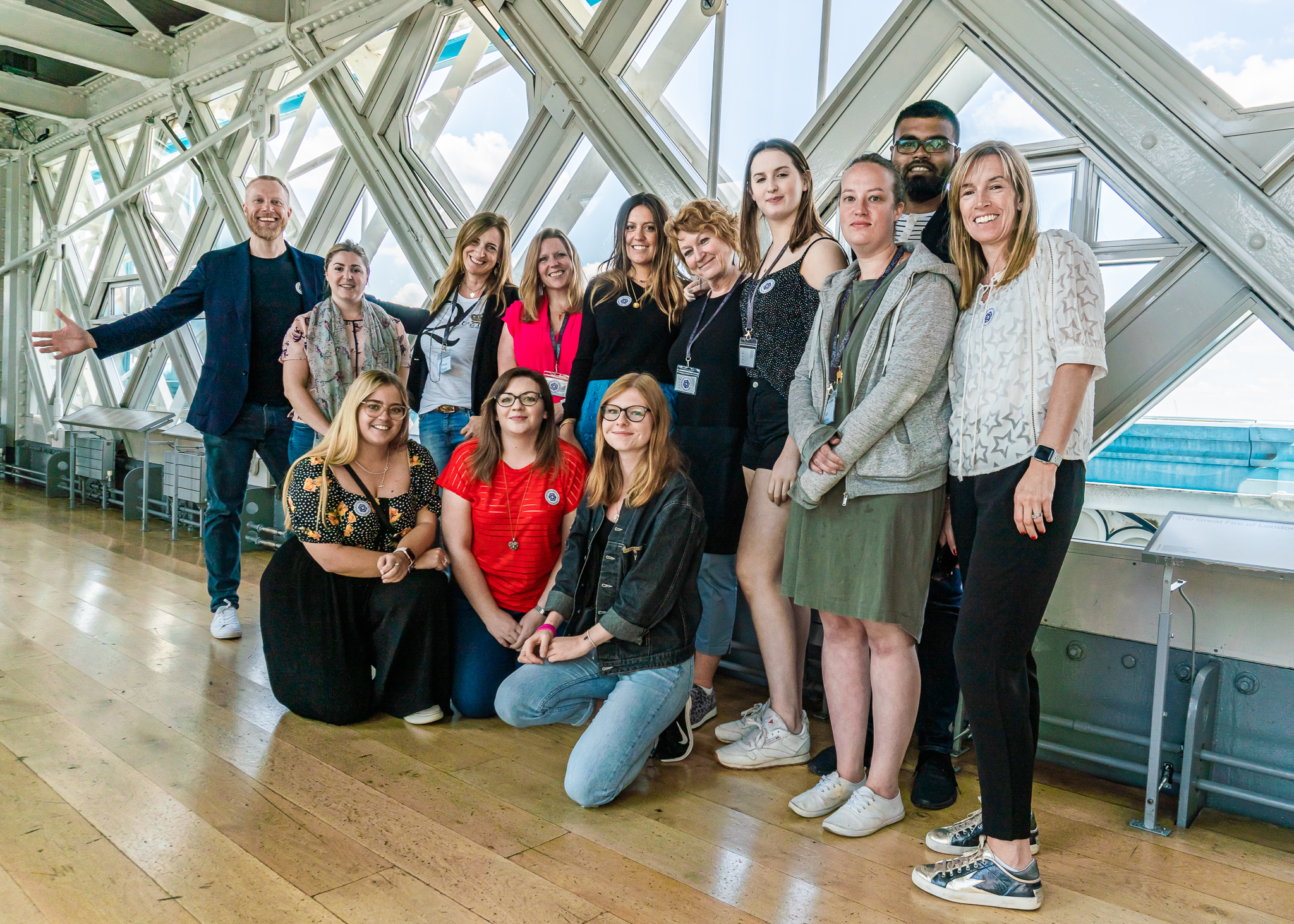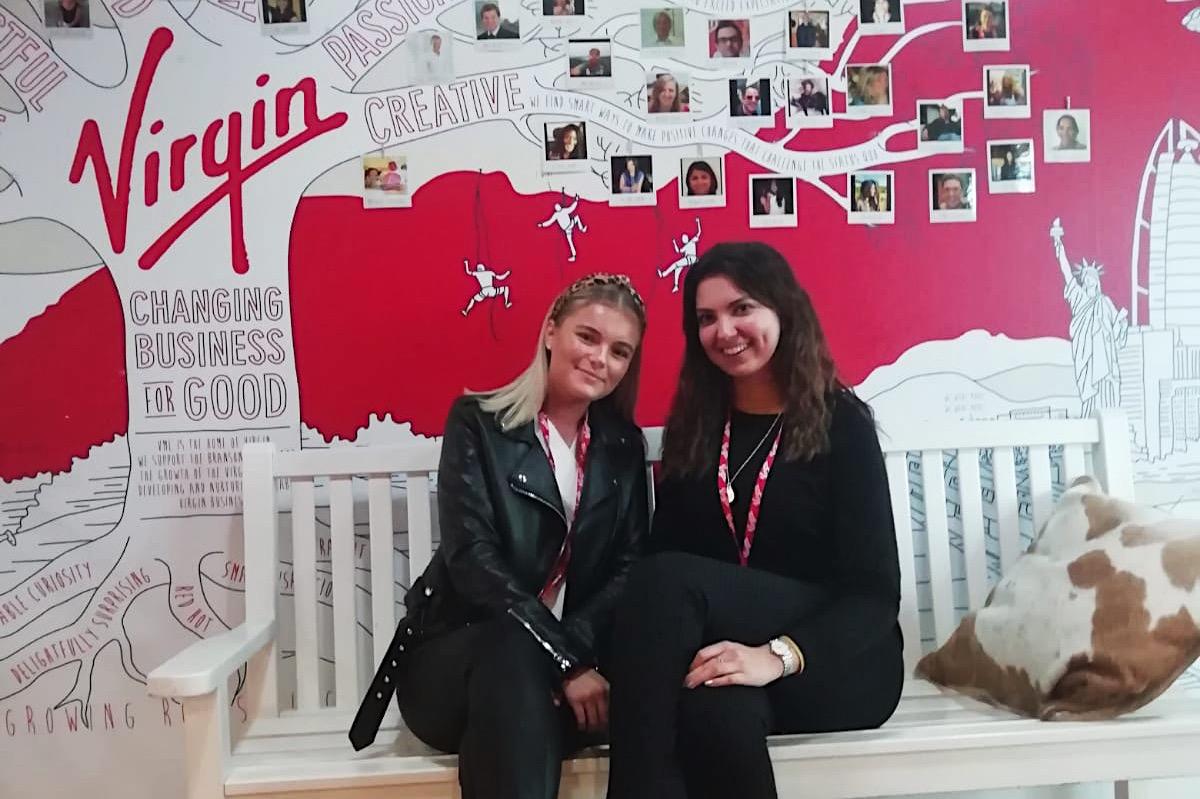
When potential students come to chat with us about event management courses, they often want to discuss the differences between university degree courses and Event Academy courses. In fact, these questions are asked so regularly – by both potential students and their parents – we thought it might be useful to share them and outline some of the answers we give.
#1. Is it important to study at uni to get a job in event management?
#2. But what’s wrong with studying events at uni for 3 or 4 years?
#3. How is a vocational course different to a university course?
#5. Back to value then, what extra value does an Event Academy degree-alternative route offer?
Our honest answer to this is that, whilst all education is important, we really don’t see the value in studying event management courses for 3 or 4 years at university.
Whilst certain aspects of learning about event management are academic and theory needs to be understood to be applied, it’s practical, hands on projects for real clients that are important. Events are experiential – it’s all about doing it, experiencing it and putting theoretical knowledge and understanding straight into practice.
Most event companies (as far as possible) need employees who literally have that practical, hands-on training, or who have had intensive experience. In a fast-moving industry such as events, this intensive period should take only 6 months, maximum, so a degree-alternative route which includes industry experience can offer much better value for getting into a role than a longer university course.
Most event management uni courses are around 3 or 4 years long. Some do offer industry placement, but the year in industry tends to add on an extra year which makes the whole process much longer.
If you’re serious about launching your career in event management, then undertaking an events management degree course of 3 or 4 years will not only delay you entering the workplace, but will be extremely costly as you fund your studies and pay tuition. With the rise in student debt, this can cause many problems, including financial stress which can in turn affect the quality of your studies and your health. This isn’t the kind of stress you need when moving into the high-energy career of event management.

Most events themselves, as well as the planning and management of them, are practical and fast-paced. Taking the vocational route to level 7 learning, rather than the academic route, means that you’ll be involved in ‘doing’ right from the start. Our courses are led by industry experts who encourage and support students in putting everything they learn in the classroom into practice through our practical, live event projects.
What’s more, Event Academy is a hub of events industry professionals and specialists, so we have access to a wide range of volunteering opportunities in local, national and even global events. This means we can also offer additional experience through volunteering and sometimes even paid experience opportunities. Our volunteering list for students and alumni often includes opportunities to gain practical experience in events such as:

It’s true that you do need to have a good grip on the theoretical aspects of event management. This could include aspects such as:
But just because our courses are vocational, doesn’t mean the theory is left out, in fact, the opposite happens. First, you get to learn all about the underpinning theories of why and how you should pay attention to these aspects, with expert lectures from specialists in these areas. Then, you get to revise and practice that theory over and over again within each and every event project you’re involved in as part of your course – and then again if you take up those volunteering opportunities.
In contrast to a 3-year course where you might learn specific theory in year 1 but not put it into practice until year 3, putting theoretical knowledge into practice straight away will help to consolidate your understanding and strengthen your knowledge. Additionally, because you’re learning from industry specialists, you can be sure that the theory you’re putting into practice is the latest in best-practice for that particular area.
A good example of this comes from the marketing and promotion aspects of event management. This is a vast area of theory and our CIM-accreditation means our courses have to meet the highest standards of both theory and practice. Once you have completed the qualification successfully, this accreditation is a testament to your skills in this area.
As well as offering that all-important practical experience and chance to apply theoretical learning, another high-value outcome of our courses is that they equip you with the confidence and can-do approach essential for successful event management.
Your confidence is built up by learning the basics of event management in formal sessions, putting them into practice in course projects and then applying everything in your industry placement.
The business management or event management placement aspect of a degree-alternative route allows you to not only put your skills into action, but also gain practice as a professional, so that you have the vital skills and confidence to become a valued employee.
In fact, the vast majority of our placements go permanent or at least result in a fixed-term contract, something which can really enhance experience and get a career going.

We’re well established in the events industry, but not just as a training course provider. Our directors and tutors are all industry professionals, many with specialist skills and experience. This means that between us we have a vast bank of contacts across all sectors of the events industry. This allows us to organise placements which deliver the best opportunities available.
Examples of placement sectors include (but certainly aren’t limited to):
Just as all people are individual, so all courses are different and only you can know if a particular course content seems right in terms of situation, responsibilities and long and short-term goals. So we’re certainly not going to say you shouldn’t consider your event management university options carefully alongside other options.
Sometimes though, the nitty-gritty of comparing courses can be almost impossible to break down as perceived benefits and disadvantages seem to cancel each other out! So instead, what we will say is put course content aside for a moment and just consider the time factor.
Events is a growing industry and event managers, particularly those who can offer (or have started to build) specialist skills can quickly find themselves in demand and build an exciting, well-paid career for themselves.
If this sounds like just what you want out of working in event management, then why waste 3 to 4 years getting there? Why not consider a degree-alternative and do it all in less than a year, for around a third of the cost, and gain a CIM-accredited qualification, a CV full of event projects and a work placement experience to show for it too?